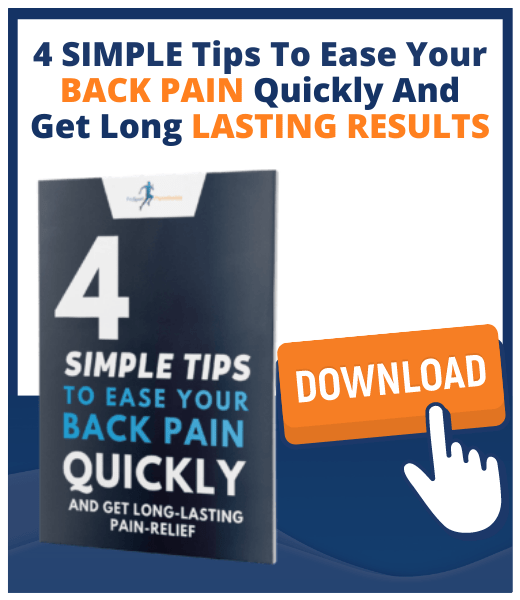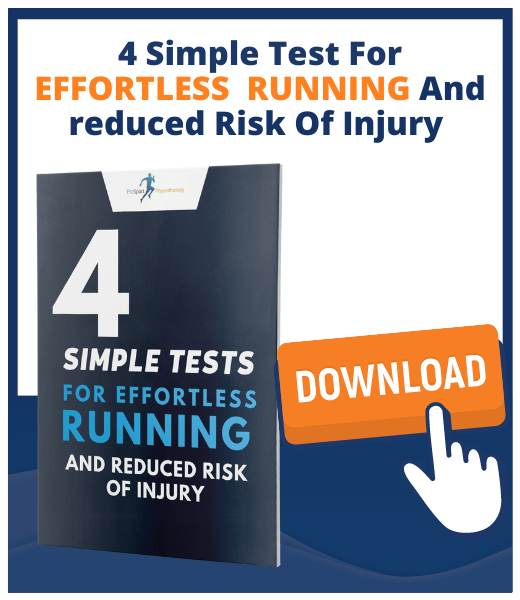Why Your Back Pain Keeps Coming Back
Dave O’Sullivan | February 25, 2020
I’m going to talk about something that’s very important….
It’s actually on page 10 of my brand new book, “Beating Back Pain Without Pills, Injections or Surgery” and that is this common pitfall that I see people getting into with back pain.
What happens is when you have back pain, you take some painkillers, or maybe you go to the GP.
They tell you to rest…
They give you some tablets…
You rest, you get a little bit of short term relief, then you go back into everyday life, and then the pain returns again, and then people get trapped into that cycle.
Well the big thing that we need to understand about back pain is it’s very specific to YOU and your story.
So two people may come into the clinic here in Huddersfield with very similar symptoms, but what caused your back pain versus what caused someone else’s can be completely different.
And the big question that we ask in the clinic here, and that our therapists are always thinking about is what’s contributed to your back pain specific to your story. So you don’t just get cookbook cutter exercises. We have to put the pieces of the puzzle together for you.
Some clues that are going to help us with that is if you’ve had any previous injuries.
What we know from research is that when you’ve had a previous injury, what your brain does is a great job of protecting that injured site.
So for instance, if you rolled your ankle, you might find that you’re walking on the outside of your foot a little bit.
Now, what happens is that this makes you want to push your big toe into the floor because if you push your big toe into the floor, that engages all the muscles around the ligaments that you usually hurt when you roll your ankle.
So your brain has this inbuilt protective mechanism to protect the areas that it perceives a threat or a problem.
Now that’s a great short term. But long term, what research has shown is that when the pain’s gone that we still use some of these movement strategies that we used when we had that injury.
So that’s where your previous injuries are very important to solve your back pain.
So it’s not very uncommon here in the clinic for someone to come in with back pain and we’re looking at their ankle, we’re looking at their knee looking at the hip, we’re looking at the shoulder, we’re looking at their hand.
Because we have to piece the puzzles together and the big thing that we want to know here in the clinic is what’s not doing its job that’s causing your lower back to maybe do too much work.
Why Your Back Pain Keeps Coming Back
 
If there are any previous injuries that you have had that maybe you altered how you were moving slightly and then that will have put excessive pressure or getting your back to do a little bit more work.
The second thing that we need to be aware of with back pain is, if there are any nonphysical stressors as we call them, that’s maybe contributing to your back pain. So it’s not just physical, previous injuries, but also any emotion, any trauma can also have a big impact on your back pain.
Now on that one that for one second, I’m not saying that’s in your head.
Why that’s important is when we have trauma or when we have high periods of stress our breathing pattern tends to change.
Naturally what tends to happen is we go into a bit more fight or flight, we start to increase our breathing rate.
Now the big problem with that as I’ve spoken about the previous blog is that affects how our diaphragm works.
So our diaphragm, it sits here and it’s got two functions. It’s a spinal stabiliser, so it helps stabilise our core or it’s a part of the core stability muscles, but it also obviously has to keep us alive by breathing.
So when our breathing rate increases and we get a little bit stressed, we get a bit anxious, we might be starting to hyperventilate a little bit and might get a little bit of anxiety. Our diaphragm isn’t functioning as efficiently as it should be.
So what we tend to do then is we tend to lose that ability of that diaphragm to stabilise the spine. That becomes a little bit compromised and then our lower back may have to go, okay, that’s fine. I’m going to have to use maybe other muscles a little bit more.
So what we find here in the clinic is a lot of people struggle to relax their lower back muscles. Now I’m going to talk about that in a separate blog, but that’s just one contribution of trauma or non-physical stressor that may be contributing to your back pain.
So how do we resolve this? Well, that’s where you’re going to find that we’ll do a lot of exercises that would be focused around restoring your ability to relax.
We’ll do a lot of exercises looking at breathing in conjunction with exercises that have to take into account your previous injuries also.
So it won’t be just the case.
You’re going to be given a lot of core stability exercises and a lot of glute exercises.
We have to put the pieces of the puzzle of your story together to find out what truly is contributing to causing your lower back area to maybe overwork or for your brain to go, “Actually, you know what, there’s a problem here”, which is ultimately why you have this real sensation of pain in your lower back so on a sheet of paper I want you to write down your physical previous injuries and maybe some nonphysical stressors.
In your life and in the lead up to having back pain where you’ve had an increased amount of stress for a prolonged period or maybe you’ve had um, an emotional or um, some kind of trauma in your life or a life changing event that may have caused your respiratory system to maybe increase a little bit.
Then there are two big clues for us that a lot of people want to come to us to say, you know what, no one’s ever actually asked me about these before. So we take these into account, we put the pieces of the puzzle together, and then we go about building you a bespoke treatment plan to get you back to where you want to get back to.
So if you’re interested, come in for one of our Discovery Sessions.
You can come in, you can have a no obligation assessment.
There won’t be any treatment in the session.
It’s a, it’s a free discovery session. It’s an assessment where you’ve an opportunity to come in, have a chat to the therapists if you’re a little bit sceptical about whether, whether we can help you and there’s two things you’re going to be guaranteed to get at the end of our session.
YES! I WANT TO TAKE UP THIS FREE OFFER
(WORTH £70)
You’ll get an honest opinion of what we think is causing the problems and we’ll give you an honest opinion on how long we think it’s going to take. We’re not going to tell you that it’s gonna take one or two sessions. If you’ve had it for years.
We’ll give you an honest opinion of what we think it’s going to take and we’ll also give you an outline of the plan that we would like to, to um, to put in place bespoke to you to get you back to what you want to do.
YES! I WANT TO TAKE UP THIS FREE OFFER
(WORTH £70)
If you’re not quite ready to come in and get that sorted, feel free to pick up a free copy of my book.
We’ve got a few copies left and click on the link below as well. There should be a link below this video as well. And we’ll also send this to you.
If you are in and around Huddersfield, you live quite locally, then we will ship this out to you absolutely free of charge so, as I said, the best thing is to get a discovery session up, no obligation chat. Let’s get the pieces of the puzzle together for you.
YES! I’D PREFER A FREE COPY OF THE BOOK
(WORTH £14.99)




